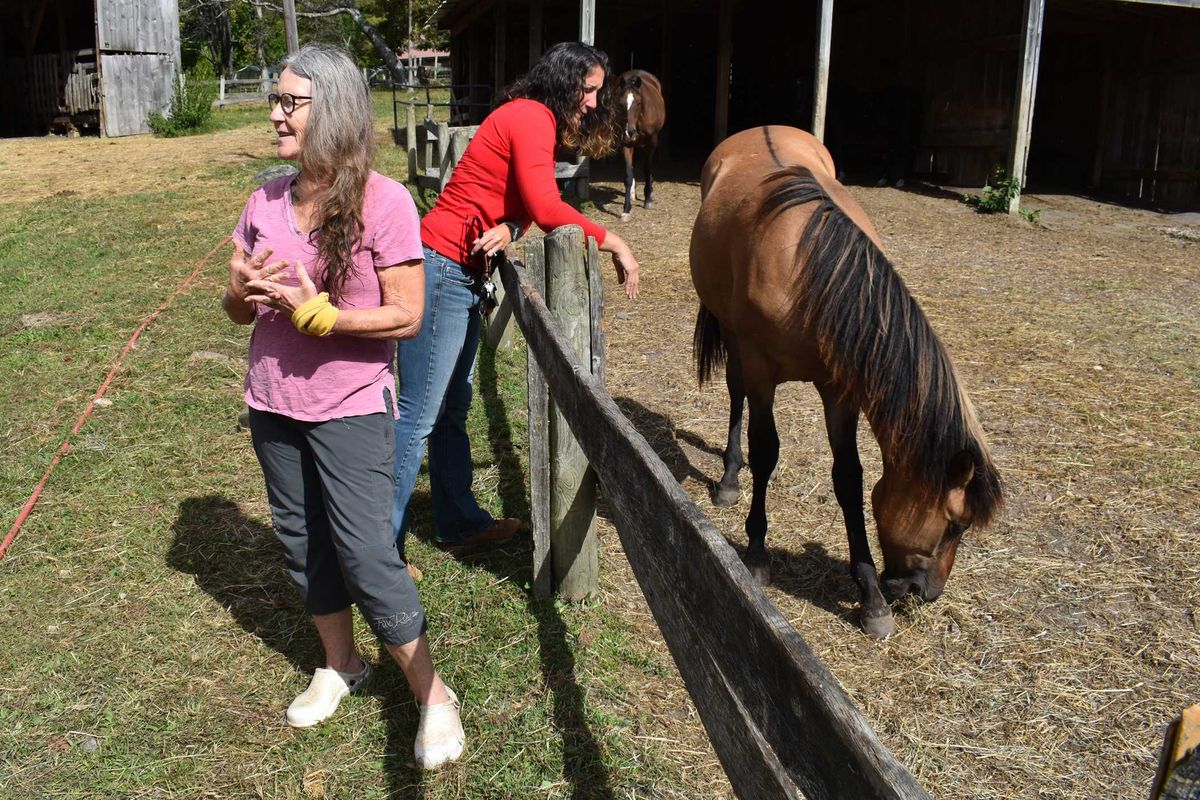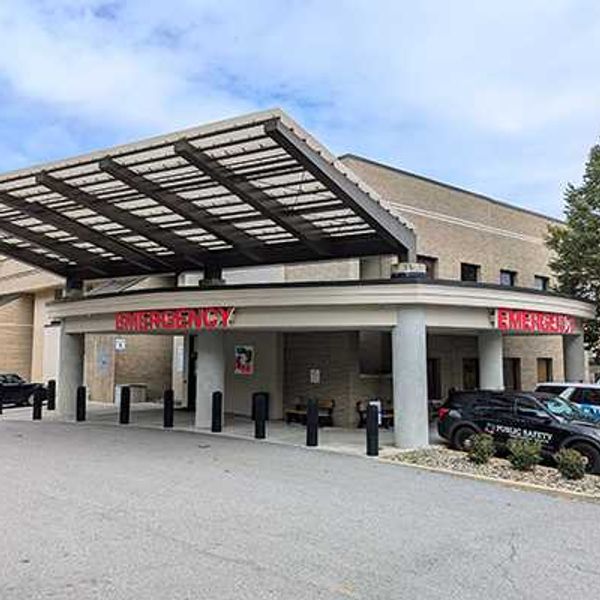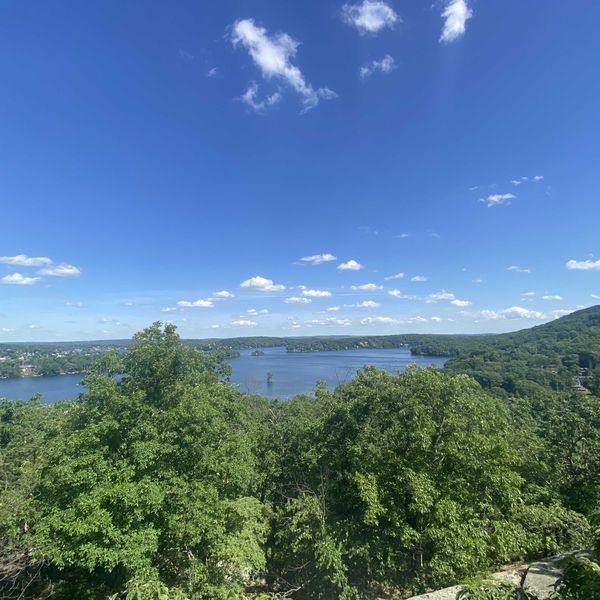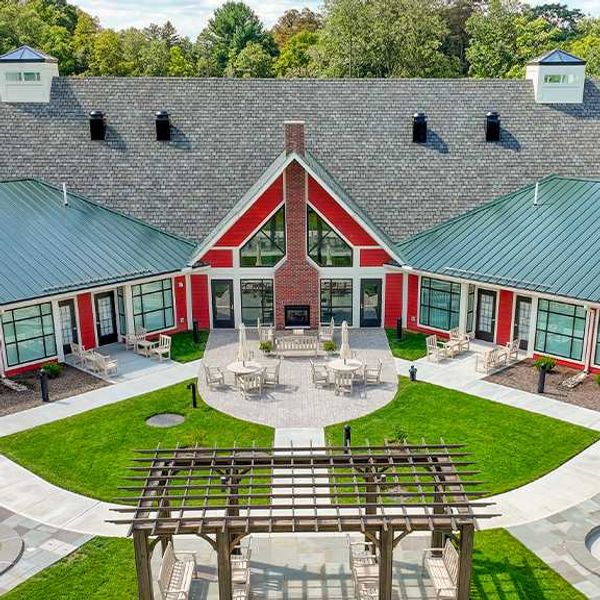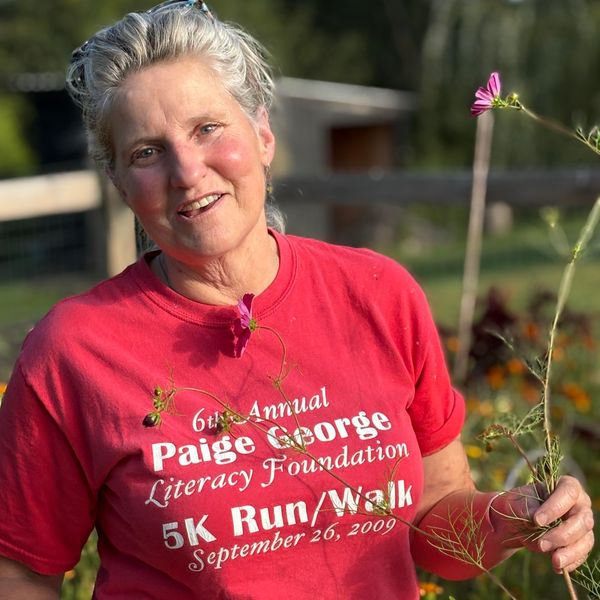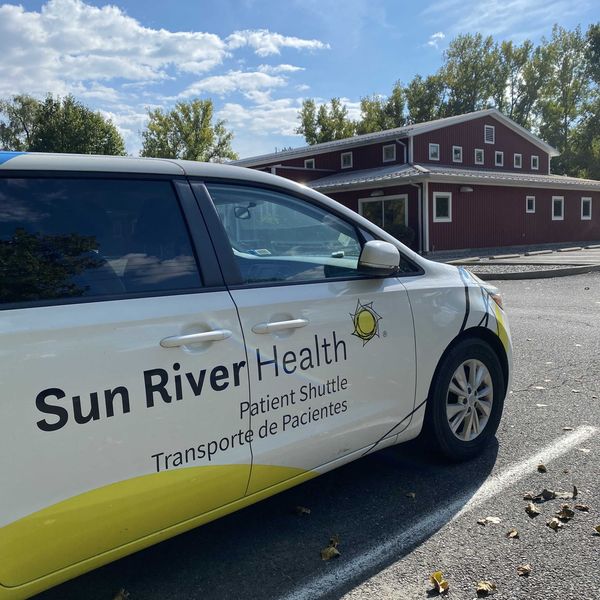Latest News
Meet the Candidates: Salisbury
Oct 01, 2025
Get to know your candidates ahead of the 2025 municipal election. In Salisbury, Curtis Rand (D) is running unopposed for his 11th term as first selectman. There are three candidates for selectman. Below, each candidate offered information about themselves and their goals for the town.
Election basics
Election Day is Nov. 4.
Early voting begins Oct. 20.
Salisburys polling station will be at Town Hall, 27 Main Street.
Voting tabulators will be used. Absentee ballots are available from the Town Clerk. Absentee ballots can be placed in the ballot box outside Town Hall and will be counted at the polls.
Selectmen in Salisbury are elected to two-year terms. They are seated on the board two weeks after Election Day. The budgeted annual salary of Salisbury’s first selectman is $101, 835 and the annual salary of the other two selectmen is $11,540 each.
As an unopposed candidate, Curtis Rand (D) will serve in his 11th term as Salisbury’s first selectman through 2027. Of the three candidates for selectman, the top two vote getters will become selectmen through 2027 (subject to state law on minority representation).
About the Board of Selectmen
At the heart of Connecticut’s municipal governance schema is the quintessentially New England selectboard, composed of the first selectman who administers day-to-day governance in town, and is assisted by two other selectmen. The Board of Selectmen is responsible for appointing various positions and roles in town commissions and for hiring and firing staff, as well as initiating and instituting town ordinances via Connecticut’s municipal democratic format, the Town Meeting. All selectmen in the Northwest Corner are allocated salaries from the town budget.
In other parts of Connecticut, some towns have begun the shift to a more modern leadership system. Winchester, for example, has adopted a “Council-Manager” form of governance. In this system, a non-partisan town manager was appointed to serve as the Chief Executive Officer of the town, supervising department heads and town staff, and the Board of Selectmen acts as the legislative body.
First Selectman

Curtis Rand
Democratic Nominee for First Selectman
Candidate profile:
I serve as First Selectman in Salisbury; I am married with 3 children and 3 grandchildren. I moved back to the farm where I grew up when we had children so we could raise them here. I am a professional forester and have served on numerous town and non-profit boards and commissions, with my major focus as First Selectman for the town. I spend my spare time with friends, family and enjoying the natural world. I love the challenges and opportunities of this job.
Why are you running for first selectman?
I am running to continue the recent efforts that are important for our residents and neighbors, including the issues mentioned below: a possible public option for our solid waste disposal that ensures future security and cooperation. Other things before us include how we allocate capacity for sewer usage; how we attract and keep local, working families; and how we educate our children. I have gained insights into these things and would be grateful for the chance to finish some of this work.
What issues deserve the most attention?
Keeping young families in Salisbury and with housing opportunities; education; budgets that plan for the future; solid waste reduction and management; traffic, speeding andsidewalks; grant opportunities for recreation, affordable housing and education; support of our first responders and all other volunteer organizations; conservation and water management, including our very important lakes; helping with a resident’s occasional personal struggles, which brings heart and reward to the job.
How would you improve the town?
Support the volunteers who work to preserve this special place. Find ways to increase affordable housing — too many young families are being priced out of town by escalating prices; more traffic calming to slow down and quiet traffic; solid waste and how to reduce it, and a deeper look into the sewer capacity and how to allocate it; help find ways to keep the lakes healthy in times of increased use and pressures; and, as always, find grant opportunities for these things and more.
Selectman

Don Mayland
Republican Nominee for Selectman
Candidate Profile
Moved to Lakeville in 1970. BA in economics from University of Vermont. M.Ed from American International College. Three years active-duty U.S. Navy. Taught at The Hotchkiss School (economics) for 38 years. Served on Board of Directors of Litchfield Bancorp for 41 years. Served as Chairman of the Board of Directors of Litchfield Bancorp for 26 years. Served on Board of Directors of the Northwest CT Community Foundation for 10 years.
Why are you running for selectman?
Salisbury Republican Town Committee’s nominee for selectman. Served on Board of Finance of The Town of Salisbury for 24 years. Served as Selectman of the Town of Salisbury for 3 terms (6 years). Is currently serving on Salisbury Water Pollution Control Authority (SWPCA) 10 years as Chairman.
What issues deserve the most attention?
Affordable Housing, Preservation of open land and forests, Preservation of water quality in the lakes and ponds and wetlands of Salisbury. Preservation of the character of the Town of Salisbury while still promoting job opportunities, especially for young people. Control of speeding on the roads in Salisbury.
How would you improve the town?
Currently the President of the Marketplace of Salisbury. Served as President of the Lake Wononscopomuc Association 5 years. Served as President of the Salisbury Volunteer Ambulance Service (SVAS) for 9 years.

Barrett Prinz
Democratic Nominee for Selectman
Candidate profile:
My family and I moved to Lakeville more than a decade ago and all three of our children graduated from Salisbury Central School. I‘m a lawyer with 26 years of experience in private practice and with international NGOs. I am currently the general counsel for a global public health non-profit. I have been on the Salisbury Central School Board of Education since the fall of 2016, am a squad member for the Salisbury Volunteer Ambulance Service, and am a board member for Salisbury Family Services.
Why are you running for selectman?
I am running to continue my service to the Town of Salisbury.We are all very fortunate to live in a great community and in a town that has been run very efficiently for many decades.This is in large part due to the fact that so many residents volunteer on town boards, for local non-profits, as first responders, etc.As a selectman, I believe that my professional experience would be of help in ensuring that we continue to provide the highest level of service to the citizens of our town.
What issues deserve the most attention?
As a member of the SCS Board of Education for 9 years, I have seen how important it is to make sure our schools (public and private) continue to thrive as they really are the heartbeat of any community. To ensure SCS remains such a great asset, we need a sound budget (which we have) and more families to remain in and move to Salisbury. To help make that possible, we need to continue to build on the tremendous efforts of so many people and groups when it comes to building more affordable housing.
How would you improve the town?
As mentioned above, I think affordable housing is one of the key challenges for the town, but it is also a key opportunity. I would like to help support the current affordable housing efforts so new families can come to town and existing residents have more options to stay in town.I would also like to help make sure our public works and infrastructure remain in good condition, our environment remains pristine, and our town continues to support our local businesses and volunteer organizations.

Kitty Kiefer
Unaffiliated Candidate for Selectman
Candidate profile
I was born here, both parents with deep roots in Salisbury. I am and have been for years unaffiliated with any political party. Education; Salisbury Central, HVRHS for two years, BA at Bates College then JD from McGeorge School of Law. Law practice included tax, estate planning and administration and sale of residential real estate in NW Boston/Middlesex County. Currently a selectman. I work with Artgarage at HVRHS, on Salisbury Economic Development and Board Member Berkshire Food Co-Op.
Why are you running for selectman?
I want to continue being a Selectman because I am familiar with the land, the people and the economic forces in our NW Corner. My concerns have always been community — building through consensus or, at minimum, rivaling issues as stepping stones to fruitful discussion and solutions. We are passionate, informed residents who want to work in the political process of our Town, for our Town. I intend to help people participate. Public Service is my goal. I welcome conversations with people I have yet to meet.
What issues deserve the most attention?
Safe walkways for us on Routes 44 and 41, connecting and serving our village centers, affordable and workforce housing for the whole region, safe & welcoming infrastructure for Appalachian Trial hikers — day hikers and through hikers, cost conscious & environmentally responsible management of our recycling, trash and food waste for compost. A key element for success is informed, active participants in our Town.
How would you improve the town?
We have many Committees and Commissions — some of which are duplicative in their missions and work. I would like to help with the efficiency and therefore the effectiveness of these groups so that we can (a) set relevant goals for our community and (b) work without silos toward goals.Flexibility is required, as is maintaining focus on the principles involved, NOT the personalities. Let’s have a cup of coffee or tea so that we can talk and then work together. The ballot is private. Please give me one of your votes. I look forward to serving another 2 years.
Keep ReadingShow less
Stephanie Januszewski
Crews battled raging flames in the early hours of Sunday, Sept. 28, when an abandoned factory on High Street in Torrington caught fire. At 1 a.m. ladder trucks were deployed around the brick building to contain the fire, an effort which persisted well into daybreak. By 8 a.m., crews had still not entered the building due to unsafe conditions. No injuries were reported. The cause of the fire was unknown. Multiple departments responded from as far as Plainville and residents reported the smell of smoke from miles away. High Street remained closed on Monday with rubble in the road. The building once housed the Hendey Machine Company, which was among the largest employers in Torrington prior to the firm’s closure in the 1950s.
Corinne Kalser, MD, left, talks about the benefits of animals as therapy partners, as Renee Bouffard, LCSW, of Healing Hoofbeats of CT, on right, watches Harry Potter, a young horse at Time Out.In the background, Finnegan, lead horse at Time Out comes to see what’s going on.
L. Tomaino
“Horses and other livestock maintain their wild instincts. They sense what we are feeling and that makes them amazing therapy partners.”
— Renee Bouffard, LCSW
In 2008, Time Out Foundation became an official rescue and therapeutic riding facility, fulfilling a lifelong dream of founder, Corinne Kalser, M.D.With her husband, David McArthur, LCSW, and the rest of their staff, they offer a haven for children and adults through gentle, relaxed therapies centered around animals — rescued horses, dogs, cats, and goats — on their 35-acre farm in Lakeville.
To ensure the foundation continues, Kalser is partnering with Healing Hoofbeats of CT, an organization with a similar philosophy of care.
“This is a way to keep it going after retiring,” said Kalser. Renee Bouffard, LCSW, founder of Healing Hoofbeats, along with Nikki Hedden, LMSW, and Rebecca Caruso, LCSW, will begin offering therapy at Time Out beginning Oct. 13. Based in Bethlehem, Connecticut, the Healing Hoofbeats team will bring their animal-assisted therapy services to Lakeville — and, as Kalser noted, “takes most insurances.”
Bouffard explained the process: “At the initial meeting, we introduce clients to all the animals with the intention of choosing who their therapy partner will be. This will be their partner for the duration of the therapy.”
“Through that process of building a relationship, issues come out — depression, anxiety, trauma. The therapist can address and can help solve them,” she added.
“Horses and other livestock maintain their wild instincts. They sense what we are feeling and that makes them amazing therapy partners.”
Relationships are built through groundwork and learning about your therapy partner.
“My oldest client is 89.We treat all ages — children, adults, families, couples, veterans,” Bouffard said.
For more information or to schedule an appointment at Time Out with the Healing Hoofbeats team, visit healinghoofbeatsofct.org or call 203-244-8411.
Keep ReadingShow less
The living room is light, airy, and quiet, with works from local artists on the walls...and no television.
Patrick L. Sullivan
Craig Davis and Keavy Bedell have opened East Mountain House in Lakeville. It is an end-of-life facility — a home, really — that can accomodate up to two guests at a time. The first guest arrived in mid-September.
The house, at 14 Bostwick St., is the one Davis shared with his wife Sandy Dennis, who died in 2020. Davis said her spirit lives on in the house itself and in the approach taken for the guests.
When a visitor enters the house from the back, the first thing to do is greet Lucy the dog.
Next is to change into a pair of slippers, supplied by management.
Then the visitor is led around, with a stop in one of the guest bedrooms, complete with hospital bed and television.
The living and dining area is spacious and comfortable.
And quiet. No TV in here, quite deliberately.
In fact, there are no televisions anywhere except in the two guest rooms.
Davis said the house had to be remodeled to some extent, including removing a spiral staircase for something more conventional and practical. But the antique windows remain.
On the second floor are bedrooms for nursing staff and family members of guests, plus an office for Executive Director Cristin Gallup.
The third floor has a quiet space or “hangout.”
The house is decorated with works from local artists.
The yard is fenced in, and guests can bring a pet if the pet “is nice and gets along with Lucy.”
The entire atmosphere is influenced by Buddhism.
“It’s Buddhist without being Buddhist” said Davis.
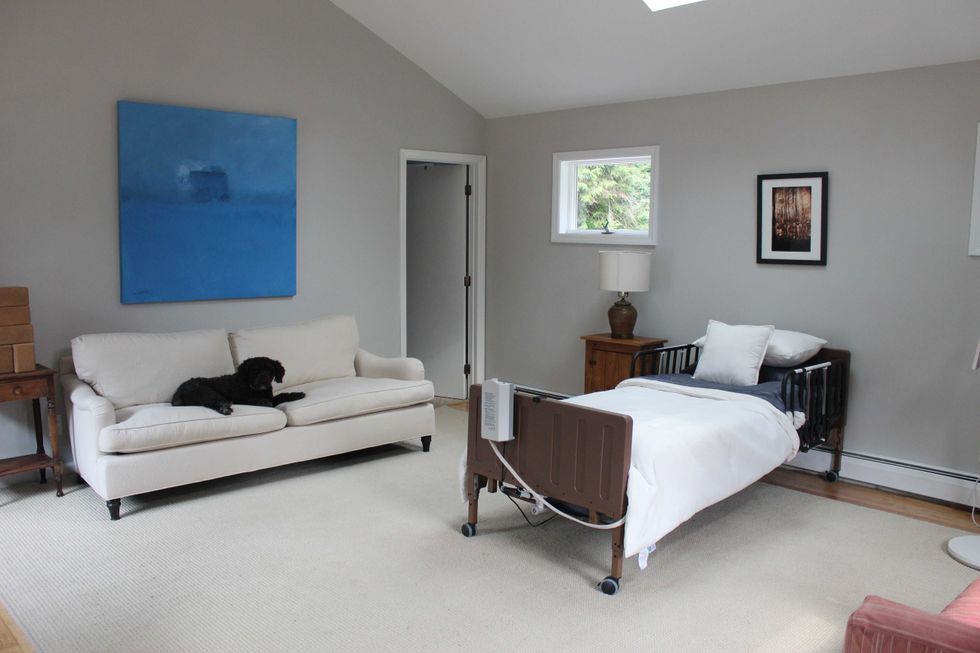
Bedell, who is a certified end-of-life doula, said she and Davis talked about starting something for end-of-life care for some time.
“East Mountain House is 10 years from inception, with three years of earnest, hard work” she said.
The facility is affiliated with Visiting Nurses and Hospice of Litchfield County (VNHLC), so there is a trained staff presence around the clock.
Plus there are between 20 to 30 volunteers involved.
To qualify, a guest must be enrolled with VNHLC, have a medical diagnosis of three months or less to live, medical insights on what to expect at the end of life, have a signed MOLST form indicating Do No Resuscitate, have a designated health care proxy and financial power of attorney, and have a hospice plan for continued care in case of discharge.
There is a sliding scale for payment, and if a guest has few assets, there is no charge.
The effort relies on donations and volunteers. East Mountain Foundation Holdings is a 501c3 nonprofit organization.
East Mountain relies on donations and volunteers, both of which are cheerfully accepted.
East Mountain House is “our gift to the community,” said Davis, and added, “Ultimately the community will have to keep it going.”
860-596-4117
Keep ReadingShow less
loading


